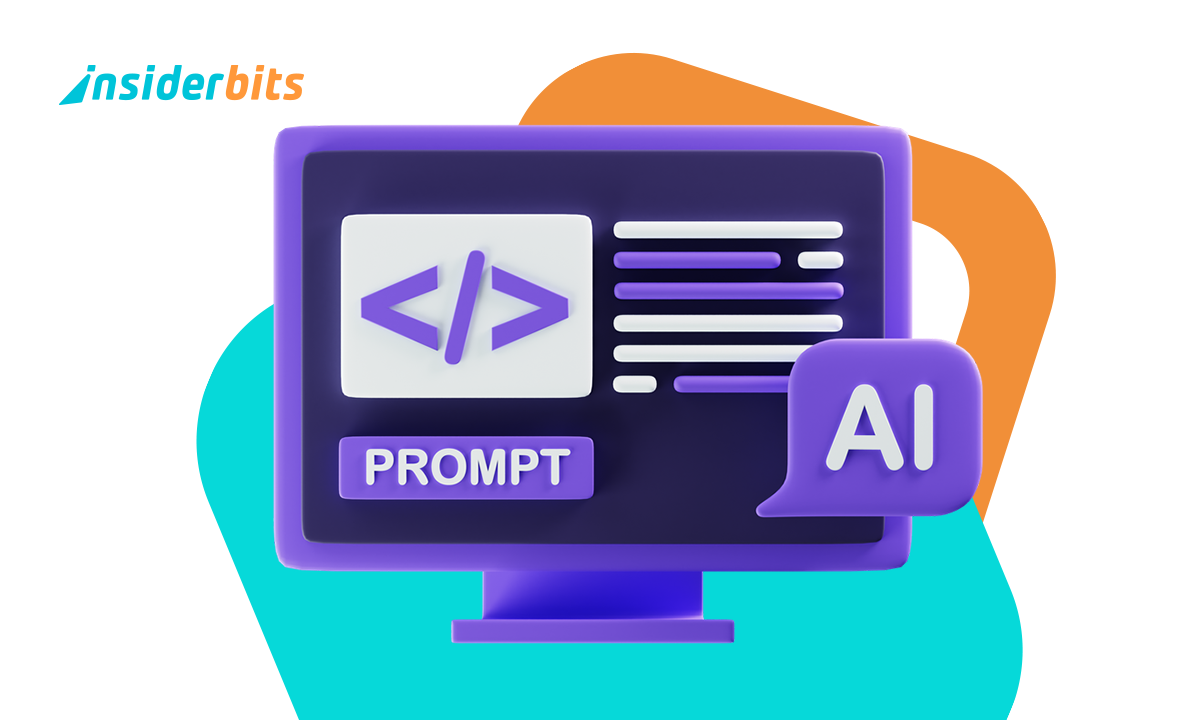Writing code is no longer a solo effort. These tools work alongside you, offering intelligent suggestions as you type, catching errors before they break your build, and learning your coding habits to provide increasingly relevant support.
With the help of AI code assistants, developers can dramatically reduce time spent on repetitive tasks, fix bugs faster, and improve code quality on the fly. From generating entire functions to suggesting documentation and refactoring complex logic, coding assistants are transforming how we build software—making smart development more accessible than ever.
- Code Land: A Playground for Young Programmers
- Code Like a Pro: Spark Your Teen’s Creativity with CodeSpark
- Codici attivi Blox Fruits per potenti vantaggi di gioco
Why AI Code Assistants Are Changing Development
AI code assistants have become essential tools for developers, helping write, debug, and optimize code faster than ever.
These tools analyze context, predict needs, and generate accurate suggestions—whether you’re a beginner or an experienced programmer.
Key Benefits:
- Faster development: generate boilerplate code instantly;
- Fewer errors: detect bugs before execution;
- Learning aid: get explanations for complex logic;
- Multi-language support: work across Python, JavaScript, C++, and more.
Top AI Code Assistants in 2025
Writing code is no longer a solo task—AI is now your programming partner. In 2025, developers are turning to AI code assistants that not only autocomplete syntax but also debug errors, generate complex functions, and explain code in plain language.
GitHub Copilot
- Best for: Professional developers
- Caratteristiche:
- Real-time code suggestions;
- Integration with VS Code, JetBrains, and more;
- Trained on public and private GitHub repos.
GitHub Copilot is the best-known AI pair-programmer, powered by OpenAI’s Codex model. It autocompletes entire lines and functions, suggests tests, and even offers natural-language explanations for complex blocks of code.
Integrated directly into popular editors like VS Code and JetBrains IDEs, Copilot continuously learns from the context of your project to deliver highly relevant suggestions.
Developers use it to prototype faster, cut boilerplate, and reduce context-switching, making everyday coding tasks up to 40 % quicker.
Codeium
- Best for: Free alternative with strong performance
- Caratteristiche:
- Zero-cost for individuals;
- Supports 70+ programming languages;
- Code search and chat assistance.
Codeium is a fast-growing, free-to-use AI code assistant that prides itself on speed and privacy. It offers autocomplete, chat-style code refactoring, and multilingual support for more than 70 languages.
Because Codeium’s server layer can be self-hosted, many companies adopt it for sensitive projects where code cannot leave their environment.
Frequent updates add new frameworks and improved model accuracy, making it an attractive alternative for developers who want Copilot-level performance without the subscription fee.
Replit Ghostwriter
- Best for: Beginners and educators
- Caratteristiche:
- Built into Replit’s cloud IDE;
- Explains code line-by-line;
- Helps debug errors interactively.
Replit Ghostwriter brings AI assistance directly into Replit’s cloud IDE, enabling instant code generation, error fixes, and natural-language explanations in one browser tab.
Because Replit runs projects online, Ghostwriter delivers context-aware suggestions across backend, frontend, and even hardware-simulation repos without local setup.
Its “Explain Code” feature is popular among learners, while seasoned developers appreciate one-click conversion of pseudocode into working scripts.
Paired with Replit’s multiplayer editing, Ghostwriter turns the browser into a collaborative, AI-powered development studio.
For a deeper comparison, see Spacelift’s AI coding tools guide.
How AI Assistants Improve Your Workflow
AI coding assistants have evolved from simple autocomplete tools to intelligent programming partners that enhance every stage of development. Here’s how they transform the coding process:
Intelligent Autocomplete (Beyond Basic Suggestions)
Modern AI assistants don’t just complete lines—they understand context and predict what you need next:
- Function Generation
- Creates entire methods based on docstrings or function names;
- Example: typing def calculate_interest( may generate a complete banking formula.
- Style Adaptation
- Learns whether you prefer snake_case or camelCase;
- Matches your commenting habits (verbose vs. minimal).
- Library Awareness
- Suggests relevant imports (e.g., automatically adding axios for API calls);
- Recommends optimal methods from frameworks you use.
Real Impact:
Developers report 30-50% faster initial implementation when using these features for boilerplate code.
Debugging & Error Fixing (Proactive Problem Solving)
AI assistants detect issues at multiple levels:
| Error Type | AI Capability | Example |
| Syntax | Instant red squiggles with 1-click fixes | Missing semicolons in JS |
| Logic | Flow analysis suggesting better approaches | Infinite loop detection |
| Prestazioni | Identifying O(n²) operations | Recommending .map() instead of nested loops |
Caratteristiche avanzate:
- Runtime prediction for potential null exceptions;
- Memory leak detection in garbage-collected languages;
- Security vulnerability scanning (e.g., SQL injection risks).
Code Refactoring (Quality Enforcement)
AI tools act like 24/7 code reviewers, suggesting improvements such as:
- Structural Improvements
- Converting callback hell to async/await;
- Splitting monolithic functions.
- Modernization
- Updating var to const/let in JavaScript;
- Converting jQuery to vanilla JS.
- Pattern Implementation
- Suggesting Singleton or Factory patterns where applicable;
- Flagging anti-patterns like God objects.
Case Study:
A React codebase reduced bundle size by 18% after implementing AI-suggested component splitting.
2. Imagem para o corpo do texto
Descrição:
Close-up da tela de um editor de código (como VS Code) com um pop-up de sugestão da IA visível, completando uma função ou corrigindo um erro. Pequenos ícones ou labels como “AI Suggestion”, “Fix Bug”, ou “Optimize Logic” aparecem.
Documentation & Learning (Knowledge Transfer)
AI bridges the gap between writing code and understanding it:
- Auto-Documentation
- Generates JSDoc/TypeScript interfaces from implementation;
- Creates usage examples for new libraries.
- Apprendimento interattivo
- Explains regular expressions visually;
- Annotates complex algorithms step-by-step.
- Knowledge Retention
- Answers “Why did we implement it this way?” about legacy code;
- Creates onboarding docs for new team members.
Training Benefit:
New developers onboard 40% faster when using AI-generated code walkthroughs.
Implementation Tips
Start Small: begin with autocomplete, gradually enable more features.
Customize Suggestions: most tools allow adjusting aggressiveness of recommendations.
Verify Critical Sections: always manually review security-sensitive code.
Combine With Linters: use ESLint/Prettier alongside AI for consistent style.
These capabilities make AI assistants force multipliers—they don’t replace engineers but enable them to focus on architecture and innovation rather than routine implementation.
The most effective developers use AI for the “what” while applying human judgment to the “why” and “how.”
For teams adopting these tools, expect 2-3 weeks of adjustment before reaching optimal workflow integration.
The productivity gains—often 20-30% faster development cycles—make this investment worthwhile for most organizations.
Next Steps:
- Audit your team’s biggest time sinks (debugging? Boilerplate?);
- Match pain points to AI capabilities;
- Pilot one tool with a small project before org-wide rollout.
Best Practices When Using AI Coding Tools
Always Review Generated Code
- AI can introduce subtle bugs or security flaws;
- Verify logic matches requirements.
Maintain Security Standards
- Avoid pasting sensitive code into AI tools;
- Use enterprise versions with private data controls.
Combine With Traditional Skills
- Use AI for repetitive tasks, not architectural decisions;
- Keep honing fundamental programming knowledge.
Start Coding More Efficiently Today
AI assistants don’t replace developers—they make them more productive. Whether you choose Copilot, Codeium, or Ghostwriter, these tools can help you focus on solving bigger problems while handling routine coding tasks.
Next Steps:
- Try GitHub Copilot’s free trial
- Experiment with Codeium’s free plan
- Practice in Replit’s interactive environment
The future of coding is collaborative—between human creativity and AI efficiency.





